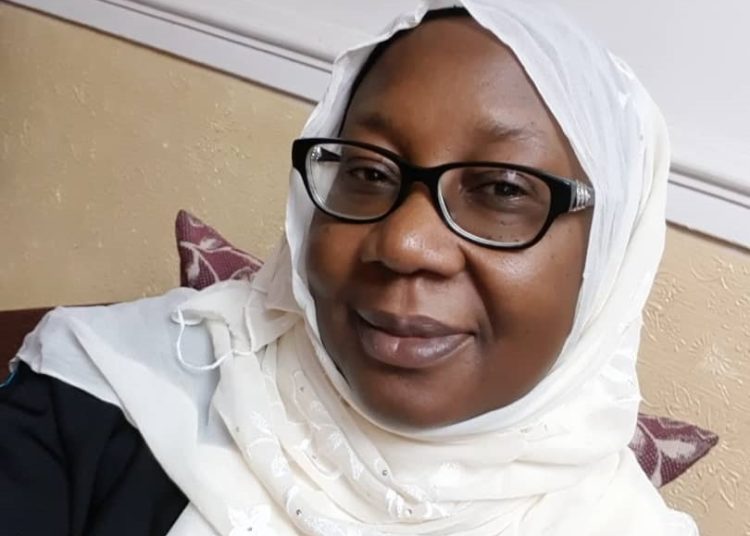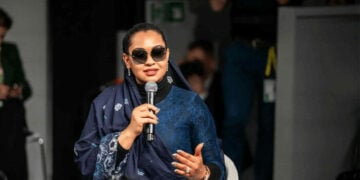Last Thursday, the International Literacy Day was celebrated worldwide. This year’s theme was ‘’Transforming Learning Spaces.’’ To what extent has Kaduna state made learning conducive for learners in the last seven years?
As you are aware, the government inherited a huge infrastructure deficit, when it took over seven years ago. We had to declare a state of emergency on education. Today, almost all our schools have witnessed one form of rehabilitation or the other, or an upgrade or both. Over 700 contracts for both primary and secondary schools were awarded from 2015 to 2019. We have completed the six science secondary schools, all geared towards improving our school facilities. Because of the increased enrollment in basic education classes, more classrooms have been constructed and rehabilitated.
We also built high rise buildings in some of our schools in an effort to ensure that the schools are within a perimeter. And we provided instruction materials such as white boards and other facilities for teaching aid. You may also be aware of the AGILE project, the acronym stands for Adolescent Girls Initiative for Learning and Empowerment. AGILE is learning improvement geared towards the girl-child. With the support we have had, we were also been able to provide Water Sanitation and Hygiene (WASH) facilities, renovated some infrastructure and constructed additional junior and senior secondary schools.
Apart from the AGILE Project, which other policies or programmes have you enunciated to improve girl child enrollment? Because statistics have shown that most of the 771 million people worldwide who cannot read and write are women.
Yes. We have improved our access to remote learning, like television based programmes, to reach out-of-school children particularly our girls. We have also launched the Nigerian Learning Passport for both in-school and out-of-school children. Because of the WASH facilities we provided in our schools and psychological supports, we’ve also been able to increase the girl child enrollment. We have what we call Edu Marshals who go round and when they see school age children roaming the streets during school hours, they ensure that they enrol them in school. We’ve done sensitisation with support from Civil Society Organisations(CSOs) and Development Partners, all geared towards improving enrollment, retention and completion for our girl- child and even our young mothers.
Do you prosecute parents who leave their children roaming the streets when they are supposed to be in school?
Yes, it is being developed. We haven’t prosecuted anyone yet. But it is part of our plan to do so and with the support of our sister Ministry of Justice, government will institute mobile courts. When they are in place, these courts will actually prosecute such parents, fine them. We can also sensitise them so that we can all be on the same page, with the same goal.
How has the World Bank or any Civil Society Organisation (CSO), Development Partners supported your ministry regarding the enrolment of the 10 million out-of-school children?
Yes, we have. The Reaching Out-Of-School children is a project of the Islamic Development Bank, AGILE is World Bank, then we have AMA Foundation, it’s also helping us. We also have Better Service Delivery for All (BESDA) through the Universal Basic Education Commission (UBEC), they are all in support of providing better facilities. They even fund hybrid education project with the Almajiri children. There is also the Global Partnership, Education for All; a consortium of partners. We are working together with Kaduna Basic Education Accountability Mechanism (KADBEAMS). We’ve been collaborating because education is for all and it’s a concern for all. Once you have an educated society, you will be assured that development will be improved and the society will be better for it.
What have been your challenges in mainstreaming western education and Qur’anic education?
These challenges exist. We’ve been talking about out-of-school children not even the Qur’anic education; with the Qur’anic education, the problem is even manifold, but access to basic education has eased the challenges because we service more than 300 non-formal education sector or centers in the state. These Almajiri or Tsangaya schools have also been upgraded and remodelled to include literacy and numeracy. So, the AMA Foundation has provided over N300 million. And we have been able to build eight Tsangaya schools as boarding schools. We call them Integrated Qur’anic and Tsangaya Education Schools (IQTE). They are in Tashan Jirgi, Soba; Jere, Kagarko: Kubau; Labar, Igabi; Jagindi Gari, Jema’a; Maraban Gwanda, Sabon Gari; Dan Alhajin Gabas, Lere and Hunkuyi, Kudan. These children are learning literacy, numeracy and they are still doing their Qur’anic education. We have eight at the moment and we are planning to scale up. These challenges are there but we are gradually surmounting them but these eight ones are successful so far.
Recently, Kaduna state sacked some teachers because they have been found to be incompetent. Kaduna State Universal Basic Education Board (KADSUBEB) announced that it’s going to recruit 10,000 more qualified teachers to replace them. How far has it gone in that direction?
We learnt lessons from the past exercises. So we’ve opened a portal and we have received over 73,000 applications. Out of that, we want to invite 30,000 qualified candidates. You know you can’t call everybody for that. Because we are an equal opportunity state, we don’t take cognizance of your tribe, your religion or your gender. As an equal opportunity state, what we are going to do is once you are qualified, you will be recruited after taking the computer based test, which has been prepared by experts from our tertiary institutions. The candidates that make the cutoff mark in the computer based test will now be invited for an interview and as the need arises, we matched them to gaps that we have identified. It’s going to be very transparent because we have learnt lessons from the past, most of all, we’ve done much verifications of their certificates, from their institutions, if they are presently employed, from their past employers. We are going to employ 10,000 at the end of that exercise.
Are there plans by Kaduna State Government, to empower people through vocational training so that they can be self-reliant?
No society can develop without skills because as we are sitting on these chairs, somebody manufactured them. Even if you are brilliant academically, it doesn’t stop one from using his or her hands; in fact the more brilliant you are, the better you will be at using your hands. There are plans for that even at the level of the federal government, there is what we call the TMAX project. Kaduna state is one of the seven states involved in vocational education training, 15,000 youths will be trained.
And at the state level, we are also working, you know we have what we called the BATC, the Community Service and Skills Development Centers, we have our technical schools, we have our commercial schools. So, we are trying to revamp that, this thing has been in existence since 1975/76. As I said, we inherited so much deficit. We even had a meeting yesterday (last Tuesday) about Technical and Vocational Education and Training (TVET) and the Ministry of Business, Innovation Technology is driving it but of course with us. This is because we want to mainstream it into the education curriculum. At the basic education level, KADSUBEB is even introducing technical education at the primary school level. Pupils will be taught arts and craft just to make them have that interest.
I would like to use this medium to encourage everyone to please change their perception about skills; it is not because you are not brilliant that you go to be a mechanic, a plumber, a carpenter, or tiler, it’s because you are brilliant that is why you can even either manufacture a machine or repair a machine or make something work. All the cars, all the phones, it is because somebody was brilliant that is why they can say I’m going to put all your data on your phone, all your contacts on your phone. So I’m appealing to our parents to please ensure that their children learn one skill or the other even if they study up to tertiary institution. Some students are in university and they are baking and sewing, making art works. Skills development is very important, please let’s take it seriously, and respect those that have handicraft or skill as part of their profession, it’s very important.
You have spoken at some length about how the state government has improved basic education. What is your ministry planning to do to improve tertiary institutions?
Yes, that too hasn’t been left behind. We are not unmindful of that. We have what we call tertiary roadmap. I was fortunate to be invited to Malaysia by their institute for higher education, and we are concerned about higher education, you can have secondary level skills and higher education level skills. We have learnt lessons on that, so we are now working on tertiary education roadmap from the board constitution of the council, to the management of the universities or the tertiary institutions even the structures. And again we are re-enacting our Kaduna State University bill. We are done with that of the College of Education and Nuhu Bamalli Polytechnic. So we are actively working on improving tertiary education. We know that there are some issues even in our College of Nursing and Midwifery, so they all come under that umbrella to improve the international best practices that we have seen. We may be looking at streamlining some operations, and better accreditation, more collaboration with National Board for Technical Education (NBTE) colleges of education and other federal institutions.
EDUCATION Facts:
-Education is still free and compulsory in Kaduna state, from primary to senior secondary school levels;
-Providing free education is in line with the constitution of the Federal Republic of Nigeria, the National Policy of Education and the Kaduna State Policy on Education;
-The government has strengthened free education by providing free textbooks and uniforms to primary school pupils and secondary school students;
– Last year, the administration procured textbooks, handbooks and e-books worth over N800 million for basic and post basic education;
– In 2020, N800 million was spent on uniforms and over N400 million was also spent for sewing of new uniforms last year;
— In June 2021, Her Excellency, the Deputy Governor of Kaduna state, Dr Hadiza Balarabe, flagged off the distribution of free uniforms to students;
-From 2015 to last year, Kaduna State Government has constructed about 927 new classrooms and it is building new schools around the state;
– Seven new schools have been built for gifted and talented students in Danbushiya, Pambegua, Hunkuyi, Buruku, Jere, Manchok and Rigachikun towns;





